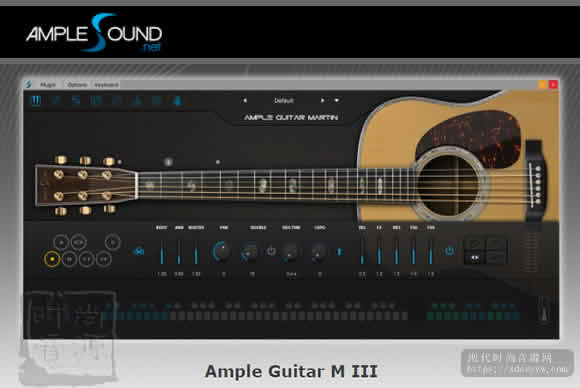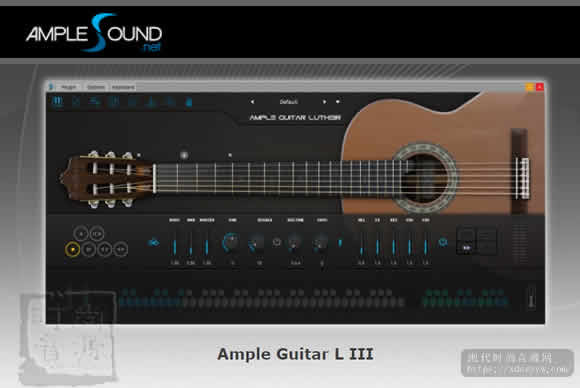![图片[1]-WA Production Future House In Serum [TUTORiAL] | 音色插件资源网-音色插件资源网](https://www.yinsebar.com/wp-content/uploads/2021/01/image-496.png)
SoSISO团队| 2020年12月12日| 1.41 GB
想知道如何创建Future House / Don Diablo / Hexagon风格的声音吗?欢迎上课。在本简介中,您将与您的讲师Phillip会面。他将为您提供期望的清单以及如何为Future House创建声音。到目前为止,本课程非常简单,并且详细显示了每个步骤。Phillip正在使用FL Studio和Serum。虽然不是必需的,但如果有,请随时进行后续操作。
简介(00:42)
在此介绍性视频中,您的老师Filip将首先进行自我介绍。
然后,Filip将提供课程概述。他将通过分别播放您将要学习的创作声音来给出本课程中涉及主题的示例。您还将学习如何以及在何处放置每个声部,如何塑造声音以及使用哪种效果。
在本课程结束时,您将知道如何设置振荡器,应用滤波器和使用包络。这些知识将使您可以创建自己的和弦,主音和低音线,以实现完美无瑕的Future Bass声音。
视频1-低音1(02:11)
在此视频中,Filip将教您如何制作低音线。该低音线将与您的子层分层放置,并将占据音轨的中低频。他还将介绍您需要进行的适当调整,以便正确地对声音进行分层。
视频2-低音2(01:41)
这是第二低音线。除了第一个低音线,该视频还将覆盖将用于滴音的低音线。Filip还将涵盖电子管失真和多频段压缩的使用。
视频3-超低音(02:27)
对于某些人来说,这可能只是课程的最佳主题。Filip将向您展示如何创建和塑造原始的,平滑的低音低音层,以适应您的音色。此过程涉及精确地使用EQ来仔细消除高频并增强中音,而不会听起来浑浊。
视频4-刺伤(01:23)
该视频介绍如何用和弦和刺点打开您的水滴以在您的水滴中使用。
Filip会向您展示在需要强大的高稳定度时,您需要对频率和音量进行哪些调整才能获得明亮的声音。
视频5-打p(01:58)
最好将这种有趣的效果声音描述为捕获蟾蜍喉咙深处的振动。打bur。您将学习如何在声音中产生幻觉。只需对EQ进行简单的调整,您就可以保持低频声音的感觉,这种声音会变得惊人的清晰。
视频6-大领先(02:56)
就是这样。这是使您的引导层合成器发出声音的方法。这种声音也可以用作滴管的主要层。Filip将向您展示如何应用不会用于低音而是中音的低音扬声器。观看将简单的音调转换为饱满,明亮的主音。您还将发现实现无缝滑行的秘诀,以及混响如何决定引线的宽度。
视频7-锯切引线(02:07)
这是未来房屋声音的主要内容。锯线。Filip将向您展示如何调整振荡器的一致声音,如何使用LFO调整声音的形状,如何应用触发器以确保每次弹奏音符时而不是在每个循环开始时更改才生效。课程的这一部分还介绍了合唱效果的变化以及如何调整高端。
视频8-Saw Lead 2(02:56)
该视频对上一个视频中的Saw Lead进行了一些更改,以实现更轻巧,听起来更复古的干净铅。这种声音类似于另一个Filip,涵盖了如何应用混响以创建具有足够空间的呼吸声音。
视频9-Pluck(02:09)
采摘。Filip将向您展示如何产生带电尼龙弹奏声。您将学习如何调整半音,八度音,减少衰减,以及如何通过使用不同的效果和设置来扩大弹奏。这样可以确保您知道如何为任何曲目创建完美的弹奏。
视频10-器官(02:24)
永远不要以为只有一种陈旧的无聊音调是无法提供的。或仅仅因为听起来很平坦并不意味着就不能扩大它。在此视频中,Filip将向您展示如何创建数字风琴声音,这是Future House发生故障和掉落的关键。您将学习如何通过使用失真来巧妙地增加温暖,以及如何通过使用混响和延迟来扩大声音。
视频11-和弦(02:38)
准备好创建和弦,该和弦将逐渐增强力量,达到顶峰并像在大型大厅中演奏那样微妙地消失。3个音符的组合可以创造出一种和弦,提供适当数量的戏剧性,电影般的感觉和有节奏的颤动感,将其完美地用作您的主唱放音层。
视频12-Chip Tune(01:49)
毫无疑问,每个人都喜欢这种8位,复古的视频游戏音效。Filip将向您展示如何获得声音,使其发出声音以及如何根据自己的喜好进行调整。可以在任何过渡期间使用此声音,也可以将其应用到您的液滴填充中。
Team SoSISO | 12 December 2020 | 1.41 GB
Want to know how to create that Future House / Don Diablo / Hexagon style sounds? Welcome to class. In this introduction, you will meet your instructor, Phillip. He will give you the rundown of what to expect and how to create sounds for Future House. This course is straightforward, to the point and shows every step in great detail. Phillip is using FL Studio and Serum. While it is not required, if you have it, feel free to follow along.
Introduction (00:42)
In this introductory video your instructor, Filip, will begin by introducing himself.
Filip will then give a course overview. He will be giving examples of the topics covered in throughout this course by playing each sound individually that you will be learning how to create. You will also learn how and where to place each part, how to shape the sound as well as what effects to use.
By the end of this course, you will know how to set up oscillators, apply filters and use envelopes. This knowledge will allow you to create your own chords, leads, and bass lines to achieve that flawless signature Future Bass sound.
Video 1 – Bass 1 (02:11)
In this video, Filip will teach you how to make a bass line. This bass line will be layered with your sub layer and will occupy the mid and low frequencies of your track. He will also be covering the proper adjustments you need in order to correctly layer sounds.
Video 2 – Bass 2 (01:41)
This is the second bass line. In addition to the first bass line, this video will be covering the bass line that will be used for drops. Filip will also cover the use of tube distortion and multi-band compression.
Video 3 – Sub Bass (02:27)
For some, this may just be the best topic of the course. Filip will show you how to create and shape a pristine sounding smooth sub bass layer that will accommodate your drops. This process involves the precise use of an EQ to carefully remove the high frequencies and boost the mids without it sounding muddy.
Video 4 – Stab (01:23)
This video covers how to open your drops with chords and the stab to use within your drops.
Filip will show you what adjustments you need to make to frequency and volume when it comes to an overpowering high stab in order to get a brilliantly bright sound.
Video 5 – Burp (01:58)
This interesting effect sound can best be described as capturing the vibration from deep within the throat of a toad. The burp. You will learn how to create illusions in sound. With simple tweaks of the EQ, you will be able to maintain the feeling of a lower frequency sound that will come through astoundingly clear.
Video 6 – Big Lead (02:56)
This is it. This is how to make your lead layer synth sound. This sound can also be used as the main layer in your drops. Filip will show you how to apply a sub-bass oscillator that is not going to be used for bass, but mids. Watch a simple tone transform into a full, rich, and bright lead sound. You will also discover the recipe for a seamless glide and how reverb dictates the width of your lead.
Video 7 – Saw Lead (02:07)
This is the staple to a future house sound. The Saw Lead. Filip will show you how to adjust the unison voices of the oscillators, how to shape the sound by using the LFO, How to apply a trigger to ensure the changes take effect each time the note is played rather than just at the start of each loop. This part of the course also covers changes to the chorus effect and how to adjust the high end.
Video 8 – Saw Lead 2 (02:56)
This video makes some changes to the Saw Lead from the previous video in order to achieve a lighter, retro-sounding clean lead. With this sound being similar to another Filip covers how to apply reverb to create a breathy sound that has plenty of room.
Video 9 – Pluck (02:09)
The pluck. Filip will show you how to produce the sound of an electrified nylon pluck. You will learn how to adjust semitones, octaves, decrease decay, and how to widen the pluck through the use of different effects and settings. This ensures you know how to create the perfect pluck for any track.
Video 10 – Organ (02:24)
Never think just an old boring tone has nothing to offer. Or just because it sounds flat doesn’t mean it can’t be widened. In this video, Filip will show you how to create a digital organ sound that is key in Future House for breakdowns and drops. You will learn how to subtly add warmth by using distortion and how to broaden the sound by using reverb and delay.
Video 11 – Chords (02:38)
Get ready to create a chord that will gradually build in power, reach its peak and subtly fade as if played in a large hall. The combination of 3 notes in unison creates a chord that delivers the right amount of dramatic, cinematic feel and touch of rhythmic shake that it will work perfectly as your lead drop layer.
Video 12 – Chip Tune (01:49)
No doubt everyone loves that 8-bit, retro, video game sound effect. Filip will show you how to achieve the sound, make it ring out, and how to adjust it to your own tastes. This sound can be used during any transition or applied to the fill of your drop.


![[三体中国民乐全套 效果器合集] 古风中国风编曲必备 R2R [WiN, MacOSX](40GB+)稳定运行版本-音色插件资源网](https://www.audioba.com/wp-content/uploads/2024/12/20240725195002777-QQ_1721908198947-734x550-1.png)

![[最新Ample吉他3代音色免安装25套合集]Ample Guitar Bass v3.7.0 [WiN, MacOSX](77.1GB+)-音色插件资源网](https://www.audioba.com/wp-content/uploads/2024/11/ample-sound.jpeg)
![[智能自动编曲软件 ]band in a box 2024 中文汉化完整版+安装方法 [WiN](201GB+)-音色插件资源网](https://www.audioba.com/wp-content/uploads/2024/10/Band-in-a-Box-10.jpg)










